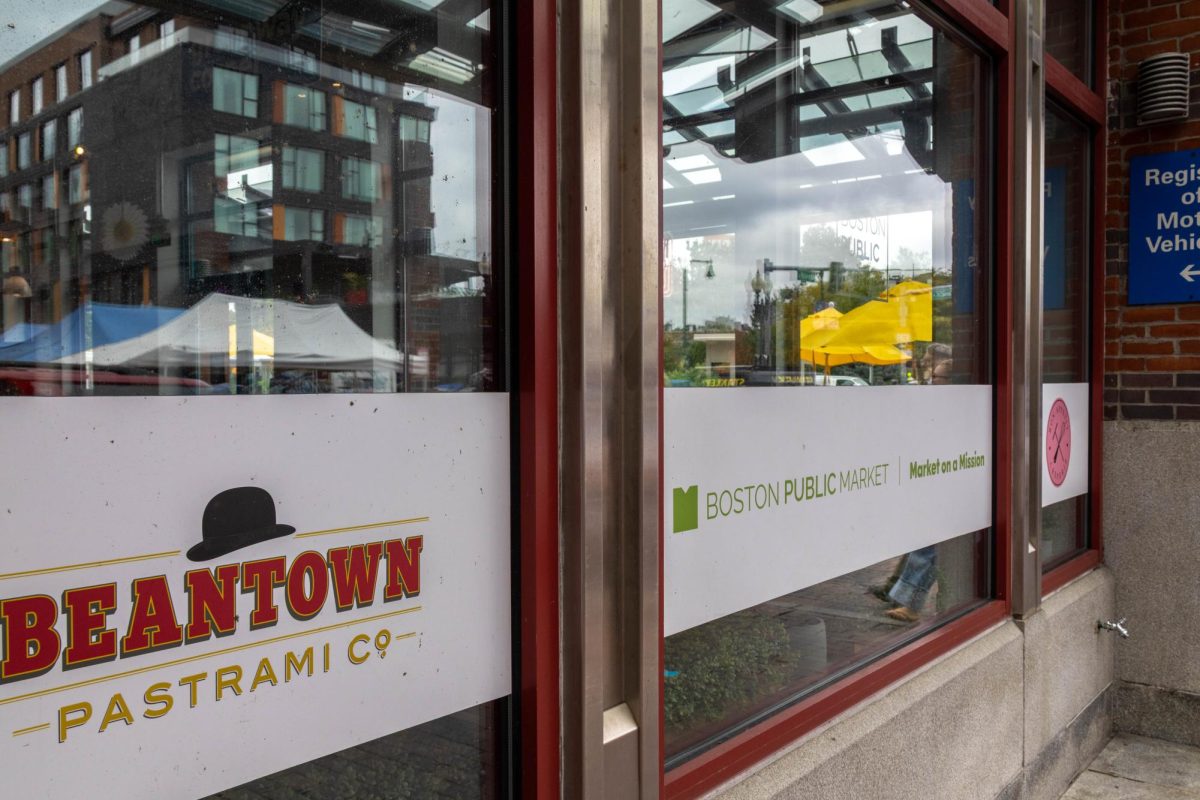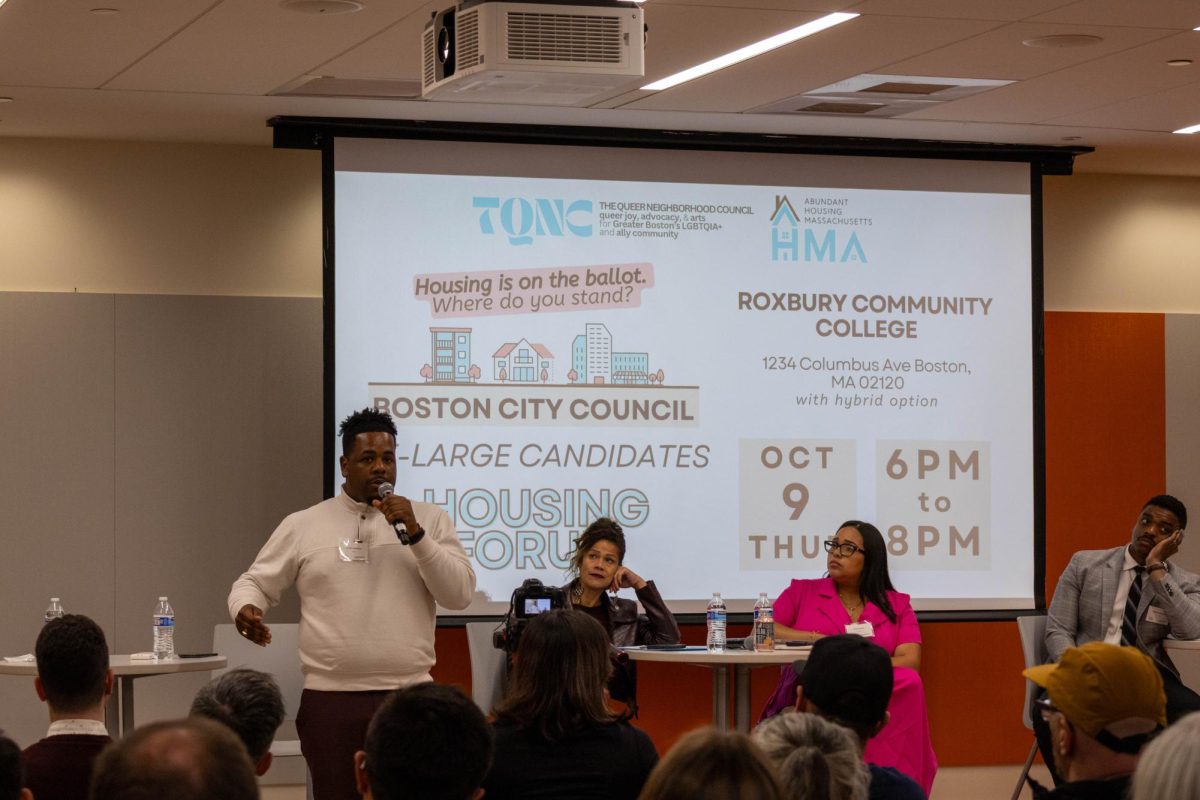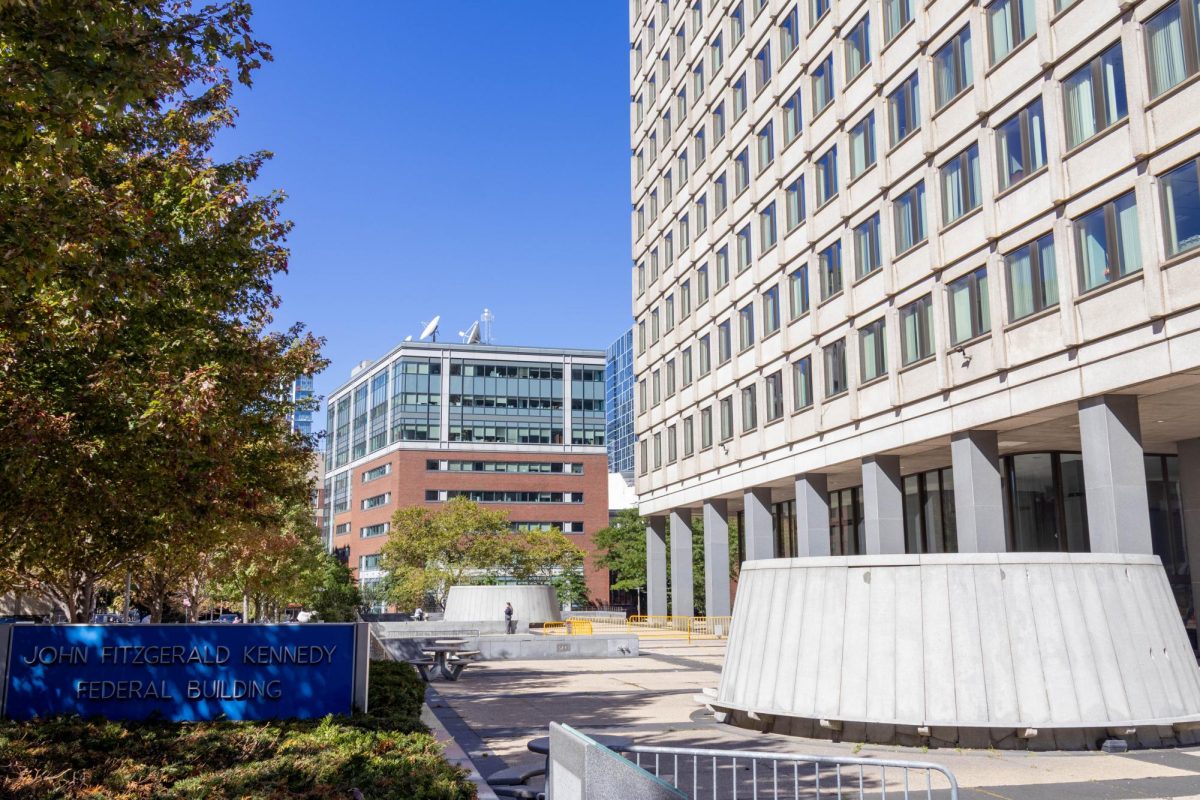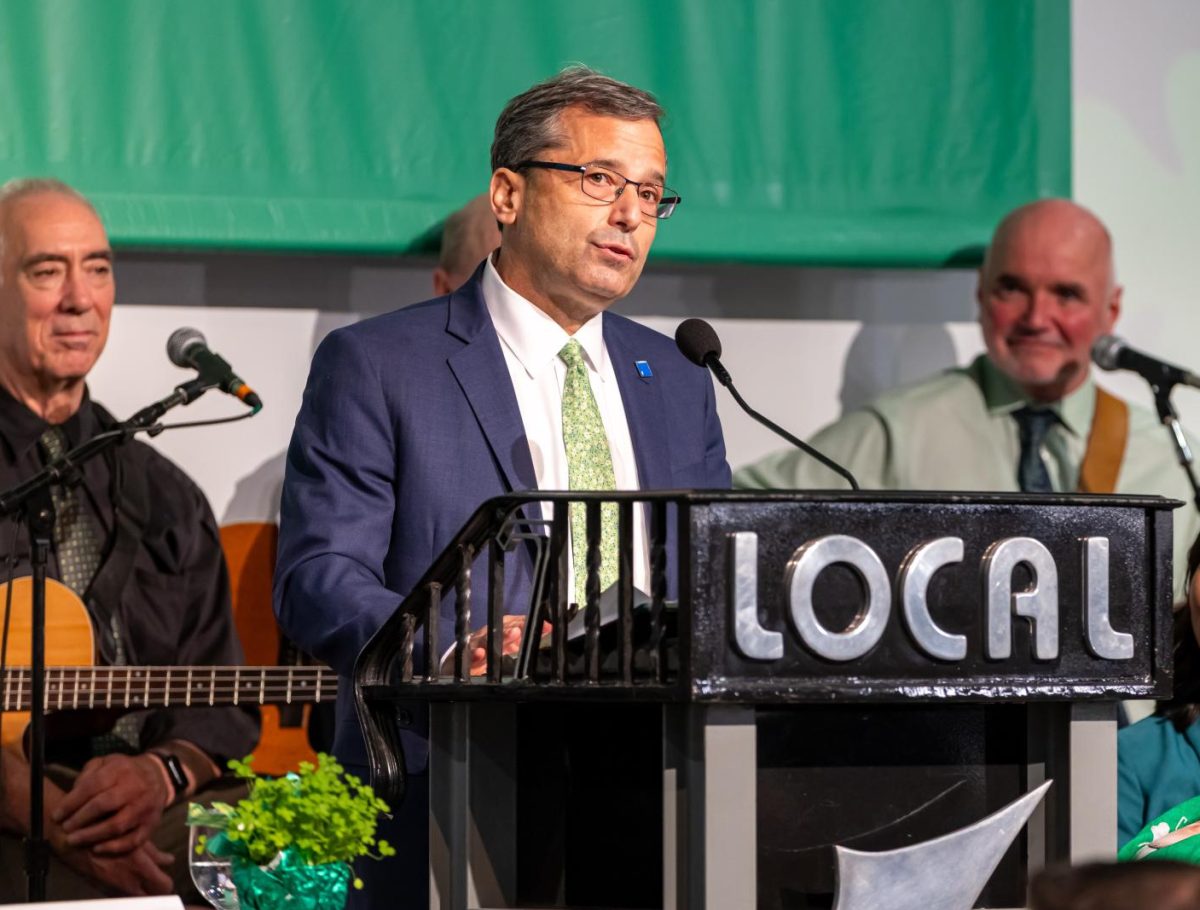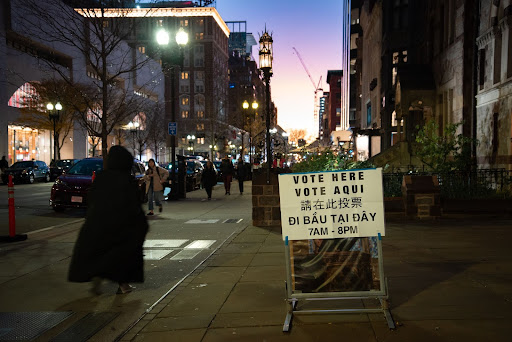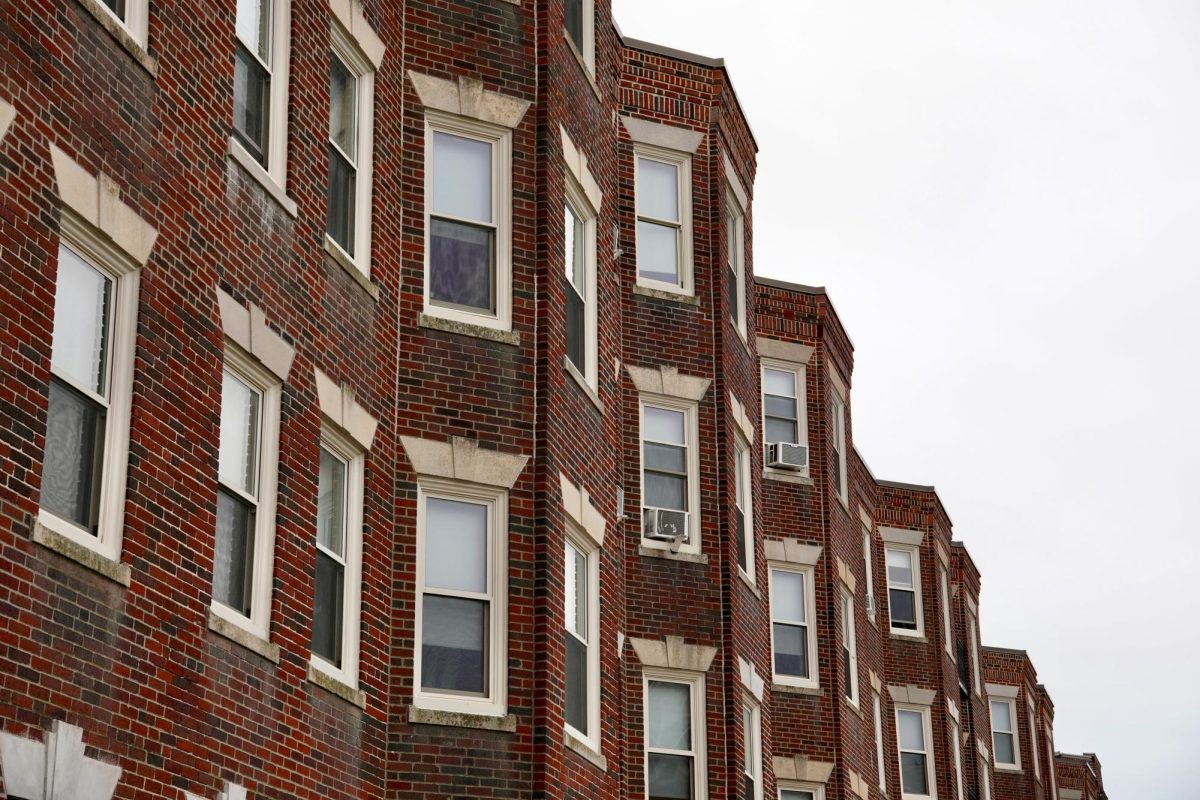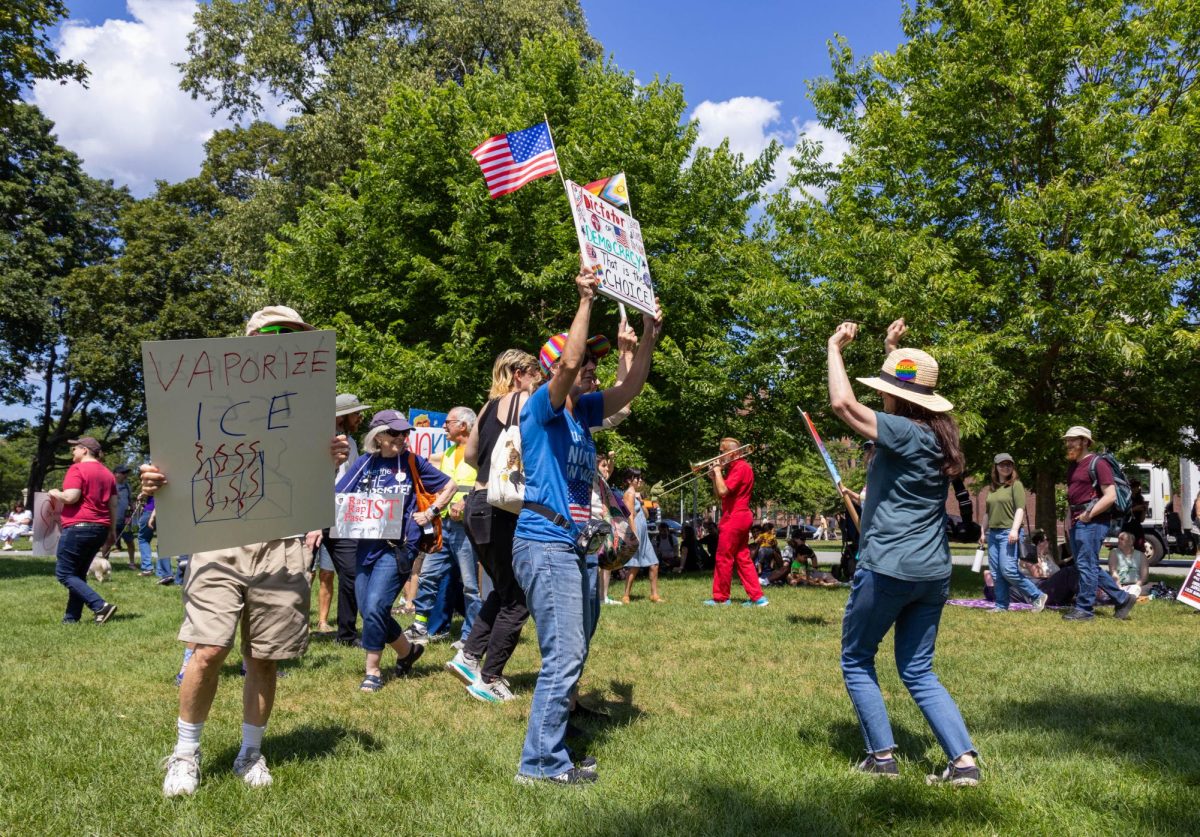More than 55,000 small businesses, employing nearly 200,000 people, call Boston home. Throughout the city—from the North End’s Mike’s Pastry with its famous cannoli to Roxbury’s Frugal Books, one of the city’s two Black-owned bookstores—local businesses serve residents and tourists alike.
President Trump’s introduction of high and broad tariffs this past year, an economic plan he campaigned on to promote domestic products, has negative implications for many of Boston’s local businesses.
Natalie Hug, owner of Hearth & Hug Bakery in Boston Public Market, has seen an uptick in prices for crucial imported ingredients like chocolate and coffee beans.
“We do get chocolate from Taza, which is local in Somerville, but they’re still importing beans, so prices have definitely gone up there,” said Hug. “We’re working on opening a bakery space in Somerville, and we’ve been finding that coffee vendors, even before we’ve ordered, are already warning us that prices are going to increase.”
Even for businesses like Hearth & Hug Bakery that make a conscious effort to buy locally, certain products must be imported, like coffee beans, which require a specific climate for cultivation.
Abby Callis, the manager of George Howell Coffee, explained the problem.
“We can’t grow coffee in America. We import it from other countries,” Callis said. “Specifically, one of the issues that we’ve been having lately is tariffs with our Brazilian coffee.”
The U.S. tariff on Brazilian products is one of the highest in the world, with a 50% rate applied to most goods. As a result, businesses like George Howell Coffee are either raising their prices for consumers or changing how products are made.
“Our main espresso has a lot of Brazil in it, but because the cost of it is increasing so much, we’re unable to produce it the same way,” said Callis. “It’s the guests that we have here, unfortunately, who are having to pay more for our product because of the tariffs.”
The economic rationale behind tariffs is to help American companies better compete with companies abroad that produce similar, less expensive products.
“In the United States, tariffs would primarily be to protect domestic producers in some way, but it’s actually one of the worst ways to go about it,” said Jill Dupree, an associate teaching professor of economics at Northeastern University.
In effect, when an American purchases an imported product with a tariff on it, or even a foreign component to build their own product, they’re taxed.
“If you’re a washing machine producer, a tariff on imported washing machines might help you because now you’re competing against washing machines that have a tax on them,” said Dupree. “But we’re also taxing many of the imported inputs that you put into making the washing machine. Your costs are going up as well, and the farther you are down the chain, the more likely it is that the tariff on your output is not enough to compensate for the tariffs on all your inputs — so you lose.”
Small businesses that don’t have the same ability as large corporations to sidestep these costs are losing out.
“A big chain business may be able to negotiate a little bit of a price change with the foreign producer that they’re buying from because they’ve got a large volume they’re purchasing, whereas the small businesses may not have that same kind of access,” Dupree said.
Some local businesses have managed to maintain their prices, but for those whose primary products have imported elements, money is lost if they don’t reevaluate what they’re charging.
“Almost all of our products are impacted by the tariffs,” Callis said. “We have to pay more, and we’re just price-matching with what the tariffs are.” Callis went on to say that since prices went up, the demand for once-popular items is decreasing.
“People have a lot of questions about it and are looking for some of the cheaper beans that we offer,” she said.
Since his second term as President, Trump has imposed or expanded tariffs on more than 90 countries and territories that trade with the United States. His administration created a universal baseline tariff of 10% on almost all imports from every nation, except China, which has a 30% baseline. Many countries are facing a higher and constantly changing country-specific tariff on top of the universal tariff.
In addition to raising prices, these sweeping tariffs, reaching as high as 145% during a brief imposition on Chinese imports, are also making certain products challenging to find in the United States.
“I’ve found it nearly impossible now to get black sesame paste, which is an ingredient that we use in some of our cookies,” said Hug, who attributes this shortage to the tariffs. “We’re making our own now just because we couldn’t find it anywhere else.”
Small businesses account for almost half of private sector employment in the U.S. Dupree says the best way to support and encourage small businesses is to keep the costs to them as low as possible. Tariffs make that more difficult.


